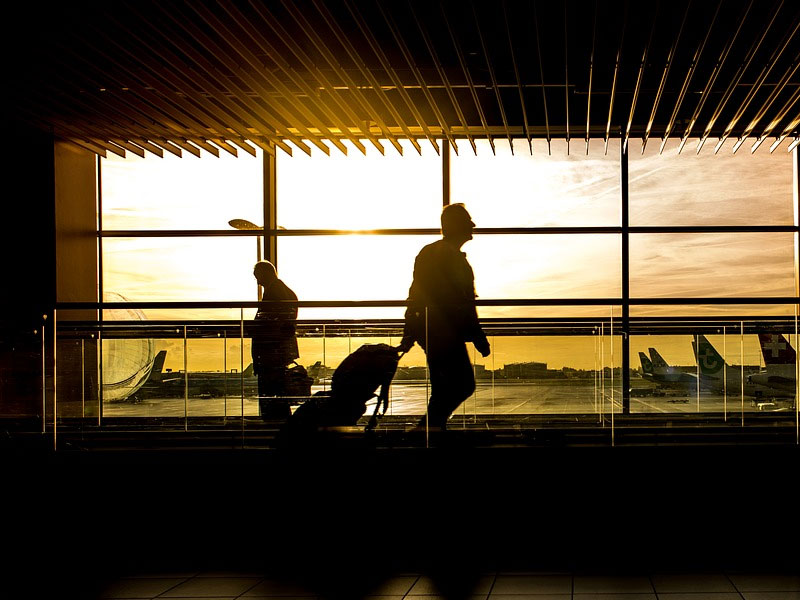
Many employees that work abroad will be travelling back to the UK for Christmas, not just for turkey and mince pies but to get their health back on-track. The familiarity of the healthcare system and specific medical professionals, accompanied by family and friends to support with aftercare, means that employees may have additional motivations to return home over Christmas than just to fill their stockings.
Employers that operate on a global scale need to be mindful of such a significant public holiday for a variety of reasons, and international expert Sarah Dennis from The Health Insurance Group highlights why:
1) Healthcare holiday
Employees travelling home over Christmas for medical treatment may have a rude awakening if they realise they are no longer entitled to receive free healthcare under the NHS. As the NHS is a resident-based healthcare system, employees that have moved abroad on a permanent basis are not automatically entitled to free healthcare. Employers are advised to therefore ensure that employees travelling home for Christmas, or indeed any other time, have adequate travel insurance and healthcare cover.
Popping back to the UK to get a dental crown fitted, or a blood test to monitor a potential health condition, could become costly to the individual if they no longer have access to free healthcare, and relevant insurances haven’t been put in place to cover such treatment.
2) Stay on top of differing regulations
Whilst we still don’t know what the final fall-out of Brexit will be, the EHIC card – that gives individuals the right to access state-provided healthcare during a temporary stay in another European Economic Area (EEA) country – is likely to be affected. And, of course, this only provides support for those travelling in Europe. Therefore, it is important that employers keep abreast of differing regulations in each country, as a trip back to the UK at Christmas can quickly turn into a disaster if the right insurances aren’t in place.
For example, employees travelling back to the UK from the United Arab Emirates (UAE) for treatment should be aware that some prescribed and over-the-counter medicines in the UK are considered controlled substances in the UAE. So, it’s important to check prescriptions are legal in places of work to avoid difficulties in customs, and allow medical treatment to continue.
3) Be aware of isolation
Christmas can be a time of bringing families and friends together, whilst merrily celebrating and taking a break from daily stresses. That’s why it’s important to be mindful of those that aren’t returning home for Christmas. It may be a very isolating time for employees in a foreign country without their loved ones around them. So, while ensuring physical healthcare cover is in place, it’s important that holistic support is provided to support staff’s mental wellbeing too – helping them to manage holiday blues that they may be experiencing. This might include investigating social groups they can join, or providing access to support from professionals.
4) Christmas isn’t consistent globally
Making assumptions about how and when Christmas is celebrated can be tricky as there are so many variations globally. In the UK, we acknowledge Christmas Day as 25 December, with it being a public holiday and employees expecting the day off to celebrate as they wish. In the Netherlands 5 December is the most important day, with Sinterklaas bringing presents.*** In Japan, Christmas Eve is celebrated and is considered as a romantic occasion – akin to Valentine’s Day. And in Kazakhstan, with around 70% of the population being Muslim, Christmas Day isn’t a big holiday and is treated as a normal working day.
So, employers shouldn’t make sweeping generalisations about the meaning of Christmas to employees as it is vastly different across the world. Ensure staff are aware of different customs. They may be in for a shock if they’re expecting a UK-style Christmas abroad in a country with a different culture. Also, listen to employees’ wishes around taking leave throughout the year and be mindful of different cultures, religions and practices.
Sarah Dennis, head of international for The Health Insurance Group said:
“However and whenever Christmas is celebrated, if at all, employers need to be mindful of employees travelling back to their home countries with a view to seeking medical treatment, as well as to see loved ones. Employees don’t want to be caught short, without the right travel and health insurance in place, as they could face a significant medical bill or risk not being treated at all.
“Ensure the physical and mental wellbeing of staff is a priority, with clear health-and-wellbeing policies in place to reflect this. With so many employees travelling home for Christmas, it’s important that suitable provisions are in place so the festive season – and beyond – goes without a hitch.”
